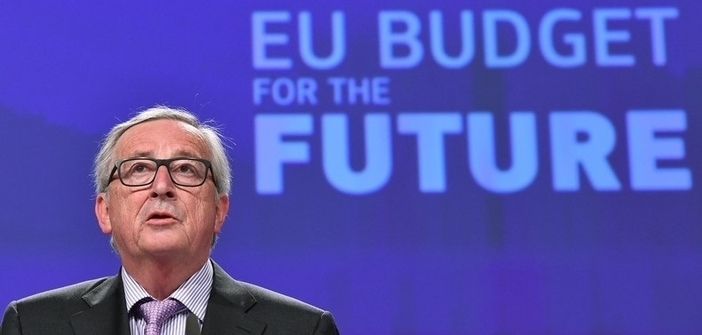On Tuesday, May 2, the European Commission unveiled its proposals for the EU budget post-2020. As expected, Brussels advocates for an increased multiannual financial framework (2021-2027) that includes new areas of action, such as migration management and security.
However, cuts are also part of the Commission’s announcements and affect agriculture and regional policy.
For over a year, negotiations have been underway at the European level concerning the future of the EU budget. With the current multiannual financial framework (2014-2020) nearing its end, discussions, which are traditionally long and difficult, have indeed already begun.
This is especially true since Brexit mechanically means the end of the UK’s contribution to the Union’s budget, currently representing between 12 and 14 billion euros annually.
For the European executive, it seems clear that fairly significant changes are necessary if the EU wants to be able to tackle the most pressing issues of the moment, such as terrorism and the migration crisis, and if it wishes to continue to have weight in globalization.
This requires a modified multiannual budget. Firstly, to gain flexibility, so as to react to inevitable emergencies. Secondly, to gain solidity, to revive economic and social convergence and to face crises. And thirdly, to gain modernity, even if it means reducing the two historical spending areas of the EU: agriculture and regional (cohesion) policy.
Obviously, higher budget proposals, as notably requested by the European Parliament, which itself advocates a budget equivalent to 1.3% of the EU’s GDP, were possible.
For the period 2021-2027, the Commission foresees a total budget of 1,279 billion euros (at current prices). This amount represents 1.11% of the GDP of the 27 Member States (excluding the UK), which is an increase of 0.11 points compared to the period 2014-2020. A seemingly modest increase, but nevertheless a small revolution in Brussels, given that the budgetary trend has been downward for many years at the European level.
The common agricultural policy (CAP) and cohesion policy will continue, in the coming years, to hold the top two spots in terms of expenditure. Together, the CAP and regional cohesion are expected to represent about 58% of the EU’s total budget (compared to over 70% currently).
Funds allocated to the CAP are thus announced to decrease by 5% and those dedicated to cohesion by 6%.
Among the other European policies that should receive significant funds are: research and innovation, whose budget is increased by 50% compared to the previous multiannual financial framework; the Erasmus program, which should see its funds doubled; border management – the European border guard corps could grow from 1,200 to 10,000 by 2027; and foreign policy, which should also be strengthened.
Additionally, there are new budget lines that did not exist before. 20 billion euros over 7 years are planned for the European defense policy, as well as 10 billion euros for migration management. The consolidation of the eurozone is also covered with about 25 billion euros earmarked for “support for structural reforms” and a reserve of approximately 30 billion euros for maintaining investments in case of another adverse economic shock.
Currently, the European budget is mostly funded by national contributions of Member States based on GDP, complemented by a large portion of customs duties collected within the Union, as well as a portion of VAT. After 2020, the European Commission is counting on three new revenue sources: the Common Consolidated Corporate Tax Base (CCCTB), the carbon market, and a tax on non-recycled plastics. Together, these resources could represent 12% of the total EU budget.
Utilizing the European budget, the Commission could act through qualified majority voting. However, the validation of this proposal, called the “Fund Supervision Mechanism,” might be challenging to obtain. Several countries, including those affected by its application, could indeed threaten to block the vote on the multiannual financial framework, which is also subject to unanimity, if the Mechanism is approved.
Furthermore, the European Commission wants to take advantage of Brexit to gradually abolish, within 5 years, all rebates on national contributions for financing the European budget.
From May 29 to June 14, the European Commission will publish the details of its legislative proposals for each expense line. This collection of texts will then outline how Brussels plans to orchestrate the broad orientations.


